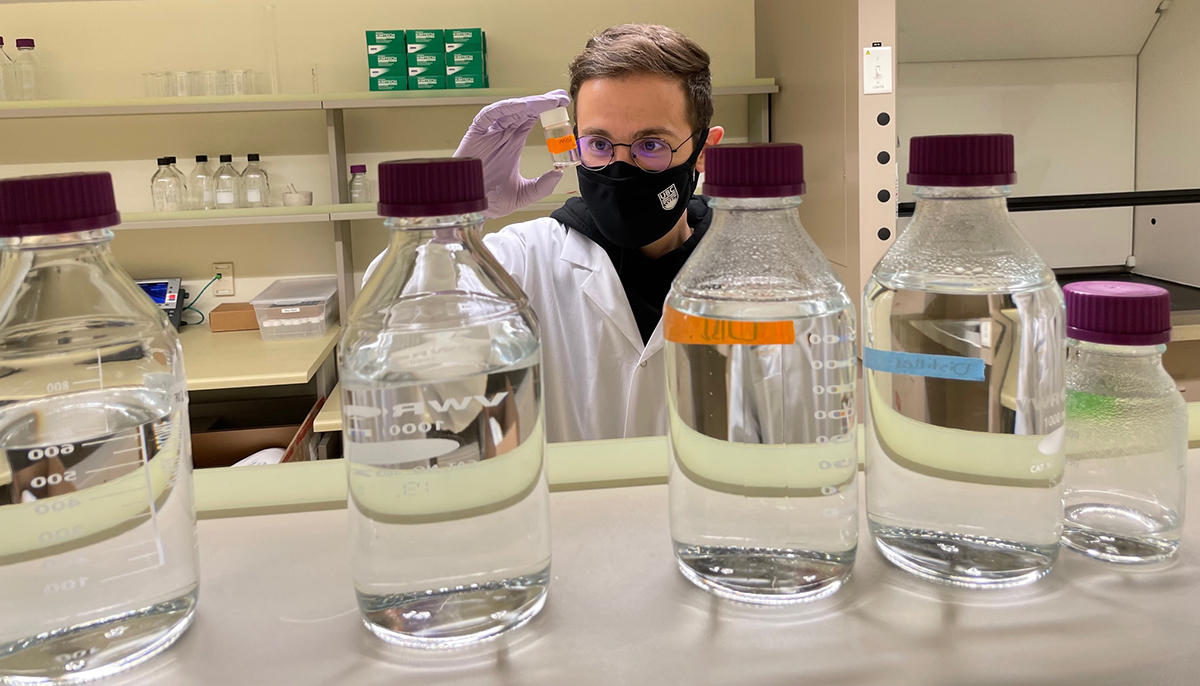PhD student rotates through labs to find how he will apply biomedical engineering to help patients
The opportunity to explore different laboratories and fields of research before selecting a thesis supervisor attracted Walid AlChamaa to pursue a PhD in biomedical engineering at UBC.
“I feel lucky every day being in this program,” says AlChamaa. “Every time I talk with other students and say I’m in the PhD rotation program, they think it’s a great opportunity and wish they could do it too.”
The first recipient of a prestigious donor-funded award for top students in the data sciences stream of the PhD rotation program, AlChamaa is spending three months each in the labs of Dr. Karen Cheung, Dr. Manu Madhav and Dr. Dena Shahriari, all faculty in the UBC School of Biomedical Engineering.
One of few programs of its kind in Canada, the PhD rotation program is even more attractive to future leaders in biomedical engineering and healthcare innovation thanks to the donor-funded award, which is available to one student per year for five years. The program could be sustained and expanded to include more students with additional philanthropic support.
AlChamaa was introduced to the world of academia and scientific research in high school through the Syrian Olympiad for Chemistry in Damascus. After the Syrian civil war broke out, he moved to Beirut, Lebanon to complete high school and begin university, where he studied computer and communications engineering and biomedical engineering.
While earning a Master of Science in biomedical engineering from the American University of Beirut, AlChamaa designed and developed a biosensor for diagnosing cardiovascular disease in patients.
“My interest in the different fields of biomedical engineering grew over the years, as did my appreciation for what we can do with technology to push the boundaries of human knowledge—that’s why I’m here at UBC,” says AlChamaa, who aims to help patients with neurological disorders or spinal cord injuries.
During his rotation in Dr. Cheung’s lab, AlChamaa was part of a large team gathering preliminary data for a grant application. The aim is to develop an injectable biomaterial to repair the injured spinal cord.
“Every time I talk with other students and say I’m in the PhD rotation program, they think it’s a great opportunity and wish they could do it too.”
Walid AlChamaa
In Dr. Madhav’s lab, AlChamaa was involved in developing a tool that records signals from the area of the brain responsible for learning and memory. The purpose is to help deepen our understanding of memory formation and preservation, illuminating a path to early detection and better management of chronic degenerative disorders.
When AlChamaa visits Dr. Shahriari’s lab, he will help develop new technology that may contribute to the goal of designing a device that would allow upper-limb amputees to control a bionic arm in a precise manner by simply thinking about it.
“I have a difficult decision to make,” says AlChamaa. “But wherever I end up, I will be eager to help patients and improve their quality of life.”
